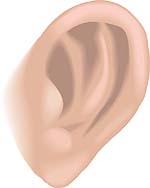| Home I About Us I Success Stories I Articles I Franchise I Contact Us |
|
Home |
Auditory Processing
Auditory processing is the ability to perceive, analyze, and conceptualize what is heard and is one of the major underlying skills needed to learn to read and spell. Auditory discrimination is hearing differences in sounds, including volume, pitch, duration, and phoneme. Phonemic awareness is the ability to segment sounds, to blend sounds to make words, to break words apart into separate sounds, and to manipulate and analyze sounds to determine the number, sequence, and sounds within a word. Signs of auditory processing difficulties vary depending on personality and on the experiences of the child. They include:
|